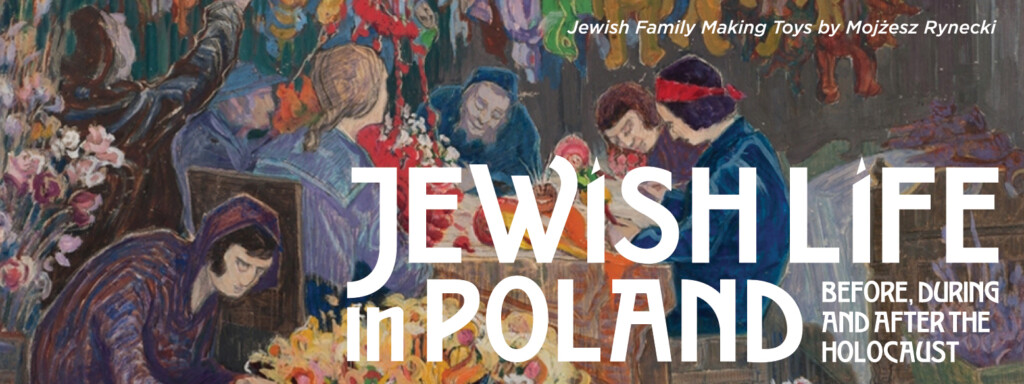
2022 Powell-Heller Conference for Holocaust Education:
“Jewish Life in Poland: Before, During and After the Holocaust”
Oct. 26-28, 2022 Hybrid Event
Thanks to the generosity of donors this event is free and open to the public.
To be Jewish in Poland, a predominantly Roman Catholic country, meant experiencing both the highs of cultural life and the absolute low of persecution and discrimination, culminating in the world’s most notorious genocide, the Holocaust. If one looks at the long view of Polish history, one would find that Jews were first invited to come to live under the king’s protection in the 13th century. This led to Poland becoming a relatively safe
haven for Jews for centuries. It also meant that Poland had one of the largest Jewish populations in all of Christian-dominated Europe. Life was full and Jews were part of the very fabric of Polish culture and society. Throughout the 19th and 20th centuries, Jews in Poland witnessed an upsurge in persecution and other antisemitic acts including vicious pogroms. Yet, the worst to come occurred when Hitler decided to invade Poland in September 1939. As the Nazi war machine conquered Poland in less than one month, Jewish life was immediately put in peril. To be a Jew in Poland during WWII meant that an individual had a 1.5% chance of survival. Jews faced executions, roundups, ghettoization, and death camps. By the end of WWII, Polish Jewry counted approximately 3 million dead. By far, this is the largest Jewish victim group from any occupied country during WWII. After the war ended, Jews who had survived had to somehow attempt to rebuild their lives and their communities. Our conference will attempt to cover what Jewish life was like before WWII, during the war years, and in the postwar environment of Poland.
PLU’s mission to support the education of our students and larger community on issues of diversity and justice are intimately connected to the study of the tragedy of the Holocaust. Students can see that marginalization of a minority group, such as the Jews of Nazi Germany, can lead to life-threatening situations culminating in one of the world’s modern genocides. Issues of distortion and denial make the process of reconciliation and healing less likely and serve as an insult to the memory of all those whose lives were destroyed in the Holocaust.


